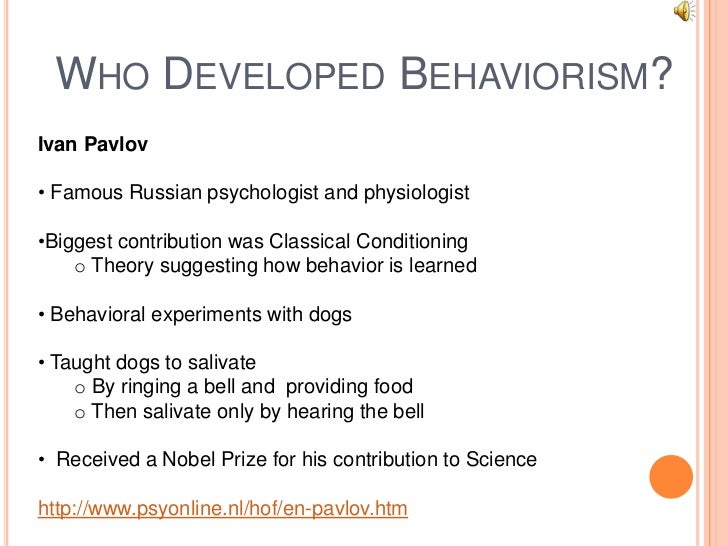

Watson further extended Pavlov’s work and applied it to human beings 3. The next stage is where a response to an unconditioned or conditioned stimulus becomes conditioned. Watson: Early Classical Conditioning with Humans. This is the step in the process where unconditioned responses to the stimuli get repeated and become learned responses. As an author he contributed papers in various research-based national and international peer-reviewed journals and book chapters, and some awaited in various national journals. Classical Conditioning is a type of learning in which a stimulus acquires the capacity to evoke a response that was originally evoked by another stimulus (. The Pavlovian theory is based on learned responses. Koushik Das is a Lecturer, Department of Education, New Alipore College, Kolkata. Ivan Pavlov was a Russian psychologist who discovered the classical conditioning theory which means learning through association. And with that he is associated with a college. After that he completed a certificate course on Adolescent Health and Counselling, from Indira Gandhi National Open University (IGNOU). Pavlovs research is essentially about associative learning, where a neutral stimulus (bell) is paired with an unconditioned stimulus (food) during conditioning.

Pavlov theory of learning full#
And then he studied for a Bachelor of Education (B.Ed) from West Bengal University of Teachers' Training, Education Planning and Administration. Ivan Pavlov, in full Ivan Petrovich Pavlov, (born September 14 September 26, New Style, 1849, Ryazan, Russiadied February 27, 1936, Leningrad now St. After this he studied PGDGC(Post Graduation Diploma in Guidance and Counselling) from Ramakrishna Mission Sikshanamandira, Belur Math (An Autonomous Body Affiliated to University of Calcutta). The theory of classical conditioning is considered scientific because Pavlov showed that it provided empirical evidence through a controlled experiment.

Koushik Das completed his Graduation and Post Graduation in Education from University of Calcutta (1, Belvedere Rd, Alipore, Kolkata, West Bengal 700027) in the year 2015.


 0 kommentar(er)
0 kommentar(er)
